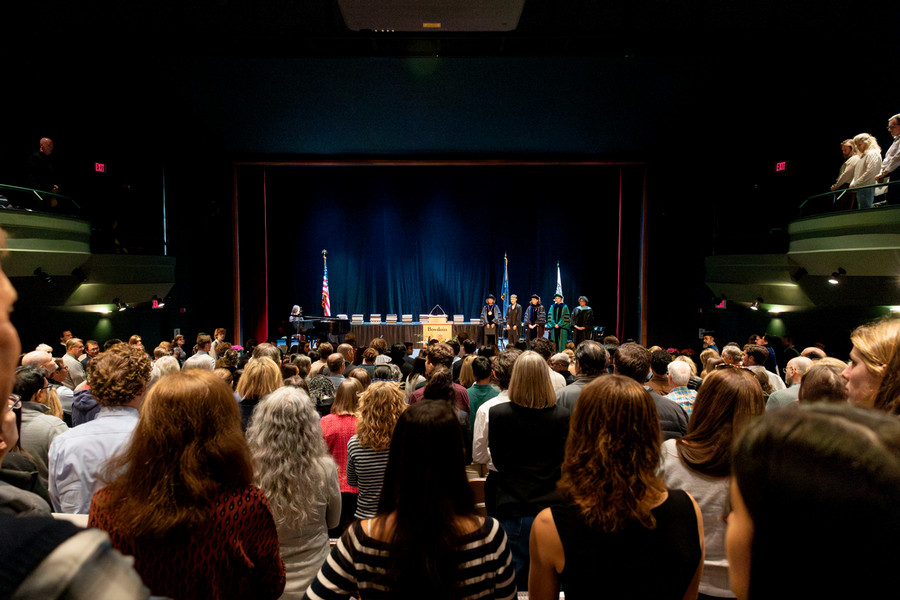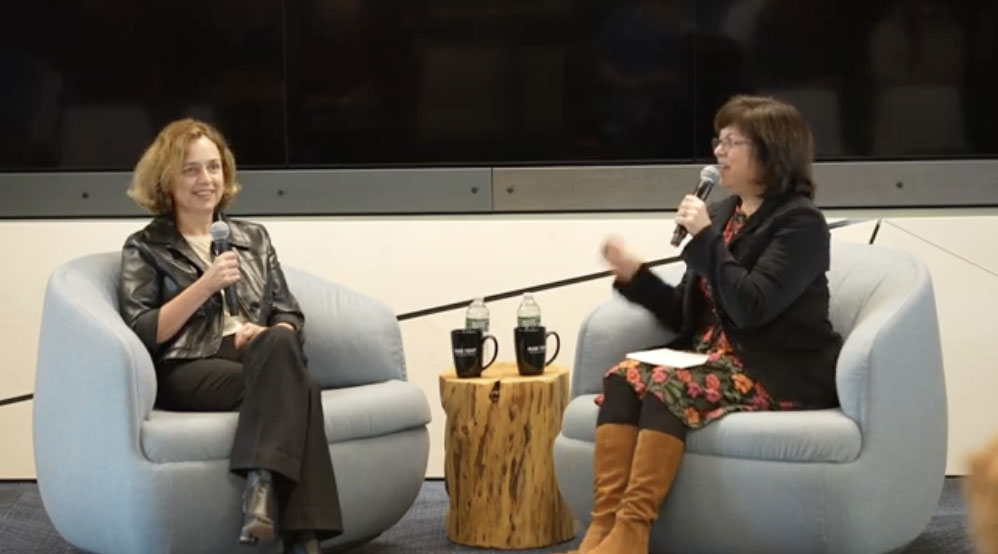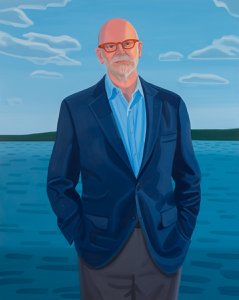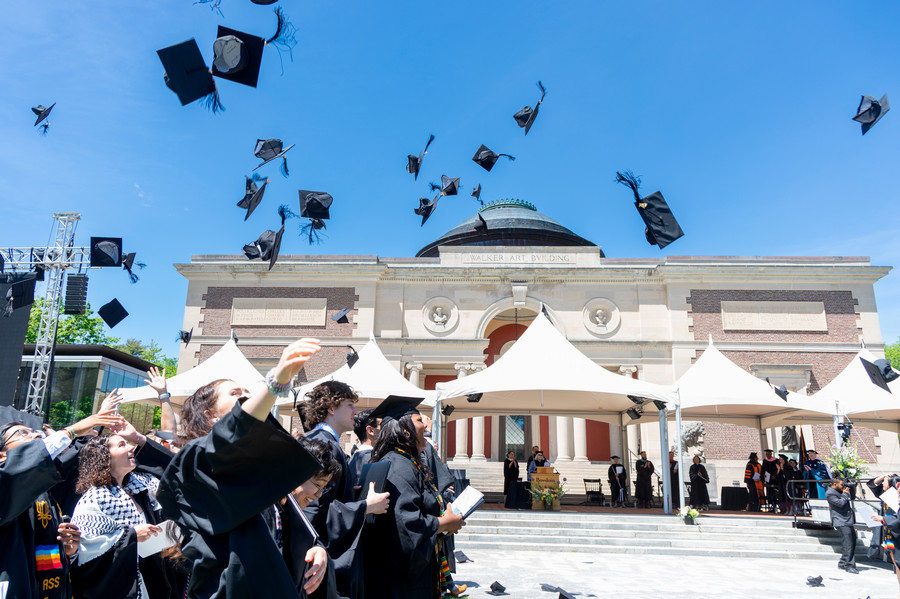Barry Mills on the Role of a College President

So there I was Monday morning, feeling pretty good about the state of the College as I read the online edition of The New York Times. After a while (I always read the Opinion section last), I eagerly turned to the latest op-ed piece by David Brooks. So much for my relaxed coffee-and-New-York-Times experience! Apparently, Brooks doesn’t think much of my job at Bowdoin.
Describing his view of the role of government in the 21st century, Brooks wrote:
“…government will be a bit like the administration of a university. A university president is nominally the head of the institution. He or she lives in the big house. But everybody knows a university president is a powerful stagehand. The professors, the researchers, the tutors, the coaches and the students are the real guts of a university. They handle the substance of what gets done. The administrators play vital but secondary roles. They build the settings. They raise money. They recruit and do marketing. They help students who are stumbling. The administrators couldn’t possibly understand or control the work in the physics or history departments. They just try to gather talent, set guidelines and create an atmosphere where brilliance can happen.”
Okay, I do live in a big house.
It wasn’t long after I read these words that I received a number of e-mails very kindly expressing outrage at Brooks’s view of my responsibilities. I have to admit that at first, I was less than enthused by his views. But he actually does have a point, even if it is a point I would have made a bit differently.
“…the quality of our faculty—along with the strength of our academic program—defines the College.”
—President Barry Mills
When people ask me, “What is Bowdoin?” I tell them Bowdoin is the faculty. We are an educational institution and our mission is to educate young people in the liberal arts tradition. Our faculty sit squarely in the central role of that mission and the quality of our faculty—along with the strength of our academic program—defines the College. These factors will continue to define Bowdoin well into the future. Of course, there are many others on campus who have a vital role in the education and development of our community. These include administrators, coaches, deans, and at Bowdoin, a support staff of essential people in facilities, dining, and many other areas of the College. Even so, a college is fundamentally represented by its faculty.
My job, as I see it, is to be more than a “stagehand” who raises money. If that were the only responsibility, by now I would probably be back in New York City counting billable hours. The job of the president of Bowdoin is much more rewarding because ours is an institution with a history and tradition of presidents who have been very involved in the life of the College and who have felt it to be their responsibility to work together with the faculty and the entire community to improve the place for everyone.
The job of college president is complex, and there are many constituencies. Presidents must assist the institution in clearly identifying its mission, its values, and its principles while ensuring that people work together, make decisions, educate, and live within those parameters. It is sometimes an administrative job. It is more often a teaching job. To do it correctly, presidents must be involved in the life of their college—speaking, writing, consulting, advising, meeting, cajoling, and fundraising all grounded in the mission. If one were to think of this simply as a management job, success would be difficult to achieve. The job is about educating a community about the path forward. College communities like Bowdoin value as among their highest priorities a sense of community. Transparency and fairness are also important values. College presidents, including this one, would not have a hope of success unless we communicate the matters of the College in the tradition of teaching and leading. I understand full well that it is not the teaching that takes place in our history or physics classes, but what we do is teaching nonetheless.
“The job of the college president is to learn from many, and to then encourage ambition and excellence.”
—President Barry Mills
I describe my job as one designed to enable people to be successful, and in order to do that, the president must learn from these people. So, learning is also an important part of the job of the college president. When I speak to new faculty, I describe my role as that of an enabler. People who are ambitious and excellent deserve to be supported. It is in their interest and in the interest of the College to support the ambition of faculty, students, and staff. The job of the college president is to learn from many, and to then encourage ambition and excellence. We do this through a process of teaching and learning aimed at sharpening ideas and crystallizing ambition into productive and valuable reality. It isn’t about merely setting up the scaffolding for the work to occur; it is more about engaging the participants as they set out to achieve, while providing the support to allow them and their work to shine. In the process, the college president gets the benefit of learning and thinking about a wide range of ideas that can only be generated on a college or university campus.
Of course, in so many respects it does all come back to money. I remember as if it was yesterday the words of a trustee who told me a decade ago: “No matter how good a job you do, you won’t be a success unless you raise a lot of money for Bowdoin.” Given that I then had no track record as a fundraiser, I took this advice seriously and with some trepidation. Fortunately, Bowdoin is a very attractive opportunity for philanthropic support. Plus, I love to ask for gifts to the College.
So, I get the point Brooks was trying to make about the role of government, and I agree that the job of a college president is to “create an atmosphere where brilliance can happen.” But that’s often easier said than done, and in my view, it is a responsibility that requires more than just the nuts and bolts of a stagehand—even a powerful stagehand who lives in the big house.



